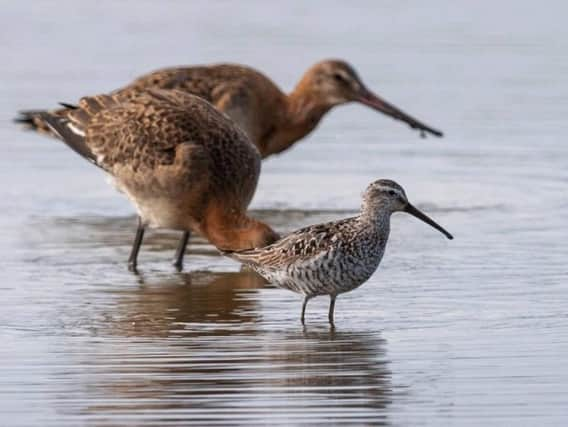Visitors flock to see extremely rare bird at RSPB reserve near Boston


The stilt sandpiper landed at Frampton Marsh last Wednesday and since then has attracted hundreds of visitors.
It is only the second time the bird has been recorded in Lincolnshire, and only 40 or 50 sightings have ever been recorded across the UK.
Advertisement
Hide AdAdvertisement
Hide AdChris Andrews, visitor experience manager at the reserve, said: “We’ve had around 1,500 people come in just to see the stilt sandpiper on top of our normal visitors.


“It was first spotted last Wednesday by a couple of gentlemen from Nottinghamshire, and since then, much excitement has ensued.”
He said the bird, which was still there on Tuesday this week, could remain for a couple more weeks, as they usually stayed in place for a little while.
The wading bird is usually found along the shore of the USA’s East Coast. Chris said it should have been travelling from North America to South America but instead had managed to get itself across the Atlantic.
Advertisement
Hide AdAdvertisement
Hide Ad“What is really nice about this one is that it is showing really well from the visitors’ centre and the paths,” he added.


It was last reported to have been in Lincolnshire in 1965.
Chris said they had also had another rare visitor from America, with a long-billed dowitcher having been spotted.
“It just shows what a great spot Frampton Marsh is for spotting rare birds.”